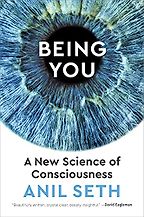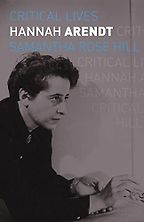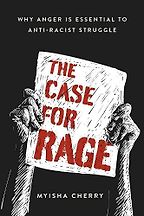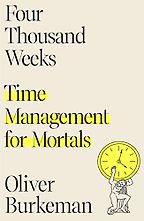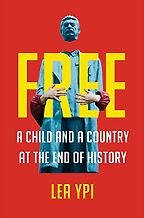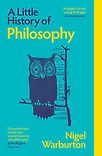Has 2021 been a good year for philosophy books?
I’ve got a very broad conception of what philosophy is, so there are certainly a lot of potential candidates for inclusion on this list. But what struck me about 2021 is the number of excellent works of public philosophy—by which I mean, accessible books that are outward facing, that deal with real life problems, and connect with a wider readership.
Many of them have been written by women. I could easily have come up with an all-woman list for this. I’m not sure why that has happened this year.
I know you’ve spoken about this before, but I like this idea of philosophy as a broad church. Why do you think that’s so important now?
Within academic philosophy, there’s a lot of worry about demarcation, where you draw the line between philosophy and other subjects. But I’ve always felt that ‘philosophy’ is more of a family resemblance term. Lots of qualities are shared by works of philosophy, but there’s no essence that a book must contain to make it philosophy. There are some clear-cut cases, and some at the edges.
So, I’m very happy to include Kierkegaard as a philosopher, for example, as most philosophers are, although some of what he wrote is basically imaginative fiction—exploring viewpoints rather than presenting a logical case with clear premises that lead to a conclusion. Another obvious example from the history of philosophy is Candide, Voltaire’s short novella, which is philosophy through a fictional form.
Get the weekly Five Books newsletter
There have been huge advances in both psychology and neuroscience in the last twenty or thirty years that are very significant for philosophy. In the 18th century, there wasn’t a big division between what we call psychology and philosophy, and someone like David Hume quite happily moved between the two. For much of the history of the subject philosophers speculated about the mind from their armchairs without getting involved in what was happening in neuroscience. But now that would be unacceptable. Recent research in neuroscience is too dramatic to do that. It would be absurd to discuss the mind without some awareness of what has been discovered.
This is obviously relevant when thinking about consciousness.
Right. You can’t analyse consciousness from your armchair without awareness of recent findings about the brain and about human behaviour. But similarly, if you’re talking about politics and doing that in a vacuum, that seems to me a fairly meaningless pursuit about the definition of terms, rather than anything that might meaningfully connect with how we live.
I’ve deliberately chosen books that are accessible to a general reader because this is not a site for specialist academic philosophers. And obviously this is limited by the range of books that I’ve actually read. But the best writing that I’ve seen this year uses some kind of empirical evidence, whether that’s science, elements of personal biography, historical archives, or current events.
Obviously the philosophy is foregrounded, there’s a sense in which people are using arguments, building a case, and linking to the history of philosophy, but they’re not afraid to go off-piste, as it were, and draw upon other disciplines to understand the topic they are discussing better.
I think this might lead us to the first of the 2021 philosophy books that you want to recommend, which is written by a neuroscientist: Anil Seth’s Being You: A New Science of Consciousness.
Although Anil describes himself as a neuroscientist, he’s also very well read in philosophy. He uses a certain amount of autobiography in this book too — discussing the phenomenology of his own conscious life in order to illustrate points, drawing on his experience of witnessing a brain operation, and even his mother’s apparent loss of self at a certain point.
It’s a book about the nature of consciousness, one of the most intractable problems that human beings have come across. How do we understand how we, as apparently material beings made of flesh and bone—and, in particular, millions of neurones—get to the position of having qualitative experience, through the experience of the world through our senses, reflection and experience. It’s not an easy problem to unravel. The philosopher David Chalmers talks about the ‘hard problem’ of consciousness, the problem of how you get from physical matter to conscious state—how you explain what the relationship between those two is.
“The best writing that I’ve seen this year uses some kind of empirical evidence, whether that’s science, biography, history, or current events”
Seth’s approach is more pragmatic in some ways. As a neuroscientist, his view is that we should deal with what he dubs the ‘real’ problem of consciousness; there is some kind of phenomenological thing that we want to explain, but by chipping away at a range of issues that connect physical processes in the brain with certain mental states, we can try to understand the relation and gradually piece together an understanding of what we are.
His own take is that our conscious experience of the world around us is a kind of controlled hallucination created by predictions and revisions that we make. We are not passive recipients of sensory information, we project an expectation and gradually refine that through our interactions with the world. This produces some weird illusions and other phenomena when things go wrong. When things go very wrong, the loss of connection with the world means that the phenomenological experience is not something that other people necessarily share. But, in a sense, we are all hallucinating the world; none of us is getting a direct picture. We project a probable scene, but that’s tested against further sensory input, and a constructive reality emerges that is constantly refreshed.
In very general terms, that’s what the book is about.
A few years ago, I interviewed Professor Dick Passingham for this site. He was one of my tutors when I studied experimental psychology. His argument was that the philosophical study of consciousness had been static for decades; only through empirical study could we possibly wrestle with this question. Neuroscience, in other words, was making the philosophy of mind obsolete. But the way you talk about this, you almost view neuroscience as a branch of applied philosophy.
It depends on the neuroscientist, I think. Anil Seth is somebody who is very philosophical in his approach, very thoughtful, and well-read in philosophy. He talks to philosophers and a range of other people interested in the mind. It would be hard not to, in the field of consciousness studies. And there are many contemporary philosophers who aren’t trained as neuroscientists, but who take neuroscience very seriously. Daniel Dennett and Patricia Churchland, for example. Both have been hugely interested in neuroscience. And in a younger generation, Keith Frankish. So there is a sense that those barriers are being broken down. I’m skeptical that philosophy will become obsolete, but it will become much more interesting through the interplay with science, in my view.
And the book is well written.
Beautifully written, easy to read, hard to put down. It’s passionate, it’s not patronising, not simplistic or anything like that. But because he’s such an elegant writer with a light touch, he knows how to get in and out of an issue and on to the next one. In some ways it reminds me of Oliver Sacks’s writing because Seth is very humane and sensitive and thoughtful as a writer. It’s a great book.
Brilliant. Your second 2021 philosophy book recommendation is a biography of one of the great modern thinkers, Hannah Arendt. Tell us about this book.
This is a part of a series called ‘Critical Lives.’ It’s an excellent example of an intellectual biography. Hannah Arendt was a super-powered intellectual, and was always, always thinking and writing, and thinking through writing—that’s one of the things she said she did: write to think. And when she wasn’t writing, she was mostly reading or listening to music, or just sometimes hanging out with friends. Arendt didn’t even see herself as a philosopher, but we tend to categorise her as one. I mean, she trained as a philosopher, but also wrote on a wide range of issues, probably most famously On the Origins of Totalitarianism, but also on the Eichmann trial where she famously coined the phrase ‘the banality of evil,’ and got into deep water as a result.
This book is brilliant. It’s written by Samantha Rose Hill, who must know as much as anyone about Hannah Arendt. She’s dived into Arendt’s surviving papers, notebooks, and even poetry, spending many hours in the archive. She knows every little bit of paper that Hannah Arendt scribbled on. And what’s so great about this as a biography is that Hill has done something that biographers rarely do—she’s been highly selective in what she’s included.
“Arendt is frequently misunderstood. Some people thought that by ‘banality,’ she meant that evil was commonplace”
The main part of the book is only just over 200 pages of a small-format book. It could have been 700 pages. There’s no doubt that Hill knows enough and could have spun this out to make a much longer book. As a result, we have the benefit of a highly intelligent writer, selecting what she feels to be most important to bring out about Arendt. We don’t get the feeling of being overwhelmed by details of an individual life—how many cigarettes she smoked on this day, and who she bumped into on that—but rather get to understand what really mattered. We still get a flavour of her life and interactions with friends and critics and so on. All of this is seen in sharp focus through Hill’s critical eye.
Here we have a very elegant story about Arendt’s life that brings out key moments and the most important themes in her thought.
I like that sense of reconstructing her thought and how it has developed over time through digging through her own notes. It’s a beeline directly into her brain.
Another thing about biography is that most writers cop out and only quote, say, half a line. What Hill has chosen to do, now and then, is quote five or maybe ten lines from something written by or about Arendt. Quotations from private letters, that sort of thing. You get a better sense of her voice with this. But that’s very hard to pull off. If you do too much of that, it breaks up the flow. But I think it works perfectly here. And it’s nicely illustrated, with photos throughout.
Tell us about Arendt getting into deep water. You mentioned it earlier.
The most controversial aspect of Hannah Arendt’s life (apart from her affair with Martin Heidegger when she was his student), was her writing about evil. In 1961 she went to Jerusalem to witness the trial of Adolf Eichmann, the Nazi official. He was the person responsible for sorting out the deportation of people to death camps.
Arendt was particularly interested to see a senior Nazi up close. She’d never seen such a high-ranking Nazi, one who had been responsible for so much evil. She wanted to try to understand that. Famously her reaction was to describe him in terms of ‘the banality of evil.’ This was in a commissioned article for a magazine, originally, but came to be the book Eichmann in Jerusalem.
Hill zooms in on that issue in chapter 15. First of all, Arendt is frequently misunderstood. Some people thought that by ‘banality,’ she meant that evil was commonplace—that we’re all capable of doing the kinds of things that Eichmann did. But she didn’t mean that. What she was referring to was the banality of his thought, an attitude to the world which didn’t allow him to make any kind of imaginative identification with other people’s experience. What he lacked was what she calls “an expansive imagination.”
In Arendt’s words,
Eichmann was perfectly intelligent, but in this respect he was stupid. It was this stupidity that was so outrageous. And that was what I actually meant by banality. There’s nothing deep about it—nothing demonic! There’s simply the reluctance ever to imagine what the other person is experiencing
She is saying that she wants to destroy the legend that evil is some kind of demonic force. This, and some other things she said in that book, resulted in a lot of criticism, particularly from some Jewish critics who felt she was wrong to talk about the complicity of the Jewish councils in overseeing the selection process for deportation. Some also criticised her ironic tone.
I learnt from this biography that it wasn’t until 2000 that the Eichmann in Jerusalem was available in Israel; it was first published in 1963, and is generally thought of as a classic book, or at least one worth reading and thinking about. So it’s remarkable that it wasn’t available, either in translation or in English there, until so recently. She really was a very controversial figure. Hill covers this all in about 14 or 15 pages—it’s brilliant, so elegantly done. This is very skilful writing, to get all the ideas into such a short space, so lucidly and without feeling rushed. I’m left with a much better understanding of the coining of that phrase, ‘the banality of evil,’ and what was actually meant by it after reading 12 pages by Hill.
I love a concise book that is nonetheless intellectually rigorous. What an efficient use of reading time! Let’s move onto our next 2021 philosophy book. This is Myisha Cherry’s The Case for Rage: Why Anger is Essential to Anti-racist Struggle. Cherry is an assistant professor of philosophy at the University of California, Riverside, and the book is described as “a philosophical defence of anger at racial injustice.” It feels like a book of the moment.
This is very consciously written as public philosophy. All the books I’ve chosen for this list are written for a general audience, but Cherry is explicit that that’s what she’s doing. She’s a very clear writer. She draws on her own experiences of being a victim of racism a various points in her life. But she also confronts the wider issues in protesting against racism and draws on recent history to make her case.
The general argument is opposing something that has its origins in a form of Stoicism. Seneca put forward the idea that anger is a form of temporary madness, and that, wherever possible, we should extirpate it. Get rid of it. It’s a bad thing because it makes people rash, makes them do stupid things. It clouds judgment and makes us do terrible things. We should instead be cool-headed and not bring that kind of passion into human relations, particularly political relations. Fairly obviously, anger has a close link with violence, so there’s the sense that once you get angry, you release the inhibitions that stop us harming other people. So, Stoics concluded it’s always a bad thing, and they even came up with exercises to help us eliminate it from life.
There’s some logic in that.
Well, perhaps in some situations. Myisha Cherry makes the case for a certain kind of rage, rage being a subset of anger. Rage for justice in the face of injustice is her main focus. She calls this ‘Lordean rage’, after the black feminist, activist and writer Audre Lorde.
Cherry’s argument is that the energy and the possibility of collective channelled action, inspired by rage, justifies this approach, and makes it superior to a more neutral response to something as outrageous as the cold-faced racism in Charlottesville, for instance. It’s been a theme in America, particularly, for hundreds of years: this refusal to treat people of different races equally, and enshrining that in law or institutionally, and also within the police where racism has repeatedly reared its ugly head, for example, as it has done to some extent in the UK.
This book is an expansion of that idea, that rage can be a good thing and not something to be avoided. It’s clearly written, and easy to read. And it looks at specific cases in which anger has been used in positive ways. This is a case for seeing some instances of anger as positive, and important, and not as a psychological problem or something to fear.
Rage as motivational force.
Exactly. That’s it in a nutshell. It’s not a complicated argument. But it’s certainly stands in opposition to some other philosophical writers in this area who have argued that we need is to reach the state of understanding and forgiveness, and that’s how we get political progress. Martha Nussbaum has, for example, taken this line. But Myisha Cherry thinks that righteous anger, which has a long and noble tradition, is something that should be celebrated and recognised within the struggle for greater racial equality and fairness of treatment. She’s not saying, ‘get angry when someone steps on your toe,’ it’s not a wholesale justification for rage. It’s this specific kind of Lordean rage that she’s celebrating. It’s very nicely done. Again, it’s very short—a small format book of under 200 pages. It’s excellent.
Is this a book for activists, specifically?
It’s definitely of relevance to them, because it contains practical advice and justifications for it. But this is not just a book for activists. It also provides an understanding of how protests unfold, and how and why not to denigrate rage when it’s justified. She’s not advocating violence, but she is clear that there’s a place for this kind of motivational rage that works in the antiracist struggle very effectively—it inspires people and brings them together, collectively, to stand up against injustice.
And for your fourth 2021 philosophy book you’ve chosen Oliver Burkeman’s Four Thousand Weeks. In the UK, it has the subtitle ‘Time and How to Use It,’ but I like the American one better: ‘Time Management for Mortals.’
Some people won’t see this as a philosophy book, but it is. It’s a book about what we do with our limited time on Earth, how we decide to prioritise and proportion our time. To that extent it’s a book of ethics in the face of inevitable death. Even if you or I live to 90, as he points out at the beginning of the book, that will only be 4,700 weeks of existence. I have to admit that when I read the title I checked the calculation because 4,000 weeks sounded far too few for a life. That’s frighteningly short. And, obviously, most people who read the book will have far fewer than 4,000 weeks left.
It’s a combination of sometimes witty, sometimes terrifying exploration of the human condition, and at the same time an antidote to those time management books that tell you how you can maximise your productivity, taking on more and more tasks and completing them efficiently. As he says, you’ll inevitably end up underachieving on some things because your time and energy are finite (something that authors of those breathless self-help books don’t always acknowledge).
He has the style of writing which draws you in and feels very personal and likeable, and he includes elements of autobiography too. He’s got a degree of distance, a degree of irony, but he’s immersed himself in the world of self-help and philosophy. It holds up a mirror to what we sacrifice, because we feel that work is the most important thing.
He points out that there is no end to a to-do list. It only grows longer.
Yes, he’s somebody who’s been absolutely caught up in all those schemes for making your life more efficient, ticking off achievements. It’s like a former alcoholic writing about drinking. He’s been there. He definitely doesn’t see busyness as a virtue, and even thinks it a good idea that we practise doing nothing. That’s an ingredient of a good life for him.
There’s a great section of the book called ‘Cosmic Insignificance Therapy’ where he spells out why he believes ultimately most people won’t put a dent in the universe, and how we can turn that to our advantage. If my life is insignificant in the grand scheme of things—and ultimately all lives are—I don’t need to beat myself up for failing to achieve something that only a few dozen people in the history of humanity have ever achieved. Once I realise that I can enjoy a modestly meaningful life through a wide range of activities, I can also perhaps come to realise that the anxieties that take up so much of our energy are, if we zoom out a bit, irrelevant. That’s the idea anyway. Burkeman is very good at giving us permission to be satisfied with doing worthwhile things on a small scale, and failing to achieve things too, without being obsessed with productivity. That in a sense is the human condition.
As with all philosophy books, you don’t have to agree with the author for this to be worth reading. This is a book that invites you to think, and possibly disagree with the author. In the process you’ll probably get clearer about what you believe matters and where you find meaning in life.
And your fifth choice is Free by Lea Ypi. It’s newly out, but has been making quite a splash.
This is a book which I’ve only just finished reading. It’s written by an LSE professor of political theory, Lea Ypi, who is also an expert on Immanuel Kant. It’s mostly a memoir about growing up in Albania. But that doesn’t adequately describe the book, because, as its title suggests, it’s really about different conceptions of freedom, told through experience and reflection on that experience. It’s very different from my other choices here. It’s a really fascinating and wonderful book, and beautifully written too. You won’t regret buying this one, for sure.
Why have you chosen this for a list of the best philosophy books?
It’s not straightforwardly philosophical throughout, but the underlying political questions emerge through a child’s experience of growing up in Tirana as Albania’s form of socialism is collapsing, as it finally did in 1990. Ypi describes her childhood in a communist state, where she is so much in thrall to what she is taught about freedom under communism that she even goes to hug a statue of Stalin. Her curiosity about the world reveals that her world of certainties, particularly in relation to her family, is not quite what she thought it was.
It’s a book about freedom both under Stalinist communism and in a liberal capitalist system, written from experience, and told through her and her family’s encounters with different ways in which their freedom has been curbed. Ypi thinks that if you believe you are free is a living in London, that is just as much a delusion as it was for her growing up in Tirana believing that she was free. It’s a book about a family and the degree to which historical circumstances shaped freedom for its members.
Five Books interviews are expensive to produce. If you're enjoying this interview, please support us by donating a small amount.
There’s a passage near the end of Free where Ypi describes how this book was originally going to be an overtly philosophical one about overlapping ideas of freedom in liberal and socialist traditions, but that as soon as she started writing it, the abstract ideas turned into people she knew, people who were the product of social relations for which they were not responsible. The result is unexpected and far more than just a collection of memories. We are very fortunate that she went in this direction. Not many writers could have pulled this off with such grace and elegance.
Leaving Albania for Italy and ultimately for London was not a journey for her to a place of freedom. That would be the Hollywood version of her life. In a way this is a spoiler, but liberalism for her carries with it associations of the destruction of solidarity, and of turning a blind eye to injustice, with victims of the system whose lives are very far from free. There is a kind of ideological delusion that we suffer from in liberal societies, she argues.
Where there any other philosophy books published in 2021 that didn’t quite make your list, but which you’d like to mention?
There are two books which caught my eye, both of which could have made the list, for different reasons. Both address contemporary issues using philosophical tools. Both are provocative, though in different ways. They force the reader to think. Amia Srinivassan’s The Right to Sex, a collection of essays on themes as varied as whether or not students should sleep with their professors (her answer is no, largely for psychological reasons about the relationship), whether we should think of people who sell sex as sex workers and decriminalise prostitution (yes), whether we should abolish prisons (ultimately, in an ideal world, yes), and much more. And, more controversially perhaps, Kathleen Stock’s Material Girls, which is a clearly-written argument about gender and the implications of allowing self-declaration to be a sufficient criterion for gender change. This is a book that has been much maligned, often by people who haven’t taken the trouble to read it. There are points I disagree with in both books, but I am grateful for both writers for helping me think more clearly about the issues they address. That, I think, is the role of good public philosophy.
Part of our best books of 2021 series.
Interview by Cal Flyn, Deputy Editor
November 30, 2021. Updated: December 15, 2025
Five Books aims to keep its book recommendations and interviews up to date. If you are the interviewee and would like to update your choice of books (or even just what you say about them) please email us at [email protected]
